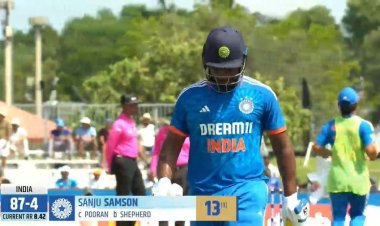Harbhajan Singh blames bad umpiring for Pakistan's defeat against South Africa
Harbhajan Singh emphasized the need for reform advocating for a more stringent application of DRS protocols to ensure fairness in critical match scenarios.
.jpg?updatedAt=1698458316245)
A highly contested Decision Review System (DRS) incident during the 26th match of the ICC Cricket World Cup 2023 between Pakistan and South Africa incited widespread outrage and controversy among spectators. This controversy centered around Rassie Van der Dussen's dismissal. As the match teetered on the precipice, the DRS controversy emerged as the focal point, intensifying tensions and inciting robust discourse among members of the cricketing community.
Amidst the critical circumstances of the match, Van der Dussen became entangled in a contentious LBW determination that incited a fervent discussion concerning the reliability of the DRS technology and its implementation in pivotal match situations. The occurrence, characterized by an error in the ball monitoring system, sparked a sequence of contradictory consequences that ultimately resulted in the dismissal of Van der Dussen, much to the dismay of cricket enthusiasts in South Africa and the international community.

In the wake of the contentious decision, there was an upsurge of fan dissatisfaction characterised by allegations of partiality and predisposition directed at the governing bodies of the game. Significantly, former Indian cricketer Harbhajan Singh voiced his dissent by expressing his apprehensions regarding the DRS regulations and the dubious application of technology during crucial moments of matches.
Harbhajan Singh, targeting the International Cricket Council (ICC), expressed his strong disapproval in a tweet and advocated for a stricter implementation of DRS protocols to guarantee integrity and openness in crucial match situations, thereby underscoring the necessity for reform.
"Pakistan lost this game due to poor umpiring and rules," Singh lamented in a tweet. "The ICC should revise this regulation." In the event that the ball strikes the stump, the score is out, irrespective of whether the umpire called out or not. What would be the purpose of technology otherwise?" The exasperated critique of the existing DRS regulations by the former Indian bowler struck a chord with cricket aficionados across the globe, heightening the demand for a thorough examination of the system's effectiveness and dependability during pivotal match-deciding circumstances.












